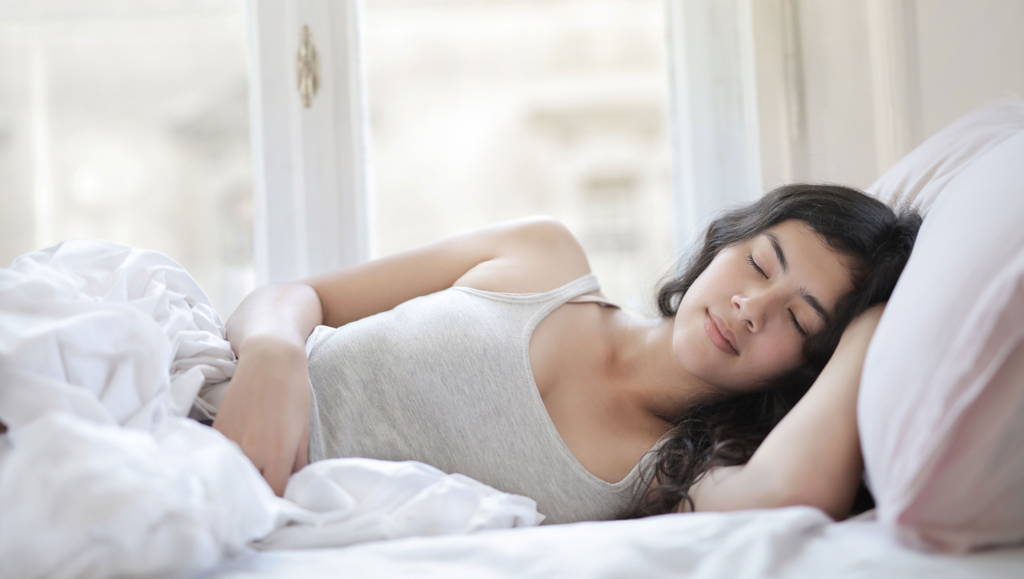
Counting Sheep
Sleep remedies to help you on your way to dreamland
By Nadia Gardner
The problem with sleep is often that we just don’t get enough of it. One of the most important parts of a healthy lifestyle, it can evade us for many reasons. Whether it’s the ordinary stresses of a work day or more significant worries, it can weigh heavily on our minds – and not just in daylight hours.
Holistic Health Coach Mila Hyman says having a good sleep routine is non-negotiable to your health and happiness. “Not getting the recommended seven to nine hours of sleep a night affects everything in our lives, from stress levels, weight gain, moods, cravings and decision making, to much more,” says Mila.
“Our circadian rhythm is our body's internal clock, which is mostly affected by day and night. It is responsible for our sleep-wake cycle, and being light sensitive, it is important to honour the different times of the day. So during the day, don't hide out in the dark. And at night, limit your exposure to bright light,” explains Mila.
For this reason, avoid using electronics (phones, laptops, TVs) that emit blue light at least one to two hours before bedtime. “Blue light disrupts our circadian rhythms and melatonin production and makes it hard to fall asleep. If you can't avoid your phone or laptop at night, opt for a "night mode" setting, which gives it a warmer glow and is less disruptive. Additionally, keep your phone away from your bedside and instead place it on a dressing table away from you if you're using it to wake up,” says Mila.
Another top tip is to aim to go to bed and wake up at the same time every day. “Getting into a healthy sleep pattern is the best way to support your circadian rhythm, and after a while, you will be in sync with this rhythm and feel ready to go to bed at certain times and wake up feeling well-rested and energised for the day ahead,” shares Mila.
Here are a few more recommendations to assist you on your journey to Cloud Nine…


Stay comfortable and cool
Anyone that’s sunken into an all-white, cloud-like hotel bed knows there's no greater treat than cosy, luxurious bedding. Buy the best quality mattress and highest thread count sheets you can afford and make sure your pillows are comfortable.
Stop caffeine by 2pm
Caffeine is a powerful stimulant, and its effects can be felt long after we’ve consumed it. It can trigger anxiety, which floods the body with hormones, keeping it alert and on edge and making it difficult to fall asleep. If you must consume coffee, opt for a caffeine-free alternative or switch to herbal teas.
Nap sparingly
When it comes to napping to help you catch up on rest, there is good news and bad news. The good news is that it can be helpful if you're dealing with sleep deprivation, which is defined as not getting sufficient hours of sleep to feel well-rested, which can result after having one too many late nights out, doom scrolling before bed, or dealing with sleep disorders. The bad news is that napping for too long can actually make it harder for you to sleep at night.
Meditate
Healthy sleep has more to do with the quality of rest than the number of hours. Sleep meditations help create the inner conditions needed for a truly restful night. Because when we settle the mind, we rest the body - and that restfulness is what makes it easier to wind down and drift off. Recommended apps to try are Headspace and Calm.
Listen to calming music
Parents know from experience that lullabies and gentle rhythms can help babies to fall asleep. Science supports this common observation, showing that children of all ages, from premature infants to elementary school children, sleep better after listening to soothing melodies. Fortunately, children aren’t the only ones who can benefit from lullabies before bedtime. People across age groups report better sleep quality after listening to calming music. It offers a simple way to improve sleep hygiene, improving your ability to fall asleep quickly and feel more rested. Music can aid sleep by helping you feel relaxed and at ease. With streaming apps and portable speakers, it’s easier than ever to take advantage of the power of music wherever you go.
Try Magnesium
If you’ve ever had problems falling (or staying) asleep, you're likely familiar with using melatonin - the supplement form of your body's sleep hormone - to help you doze off. But here's something you might not know: there’s actually another supplement out there that could help you get some sleep - magnesium. This supplement is an important player in many of the steps that allow you to absorb protein and convert it into the chemicals that help you feel sleepy. It also helps calm the nervous system, helping it work more efficiently, and plays a role in muscle relaxation and nerve function.
Shop the Plain Tiger sleep edit to calm the mind, rest the body, and soothe the skin…










